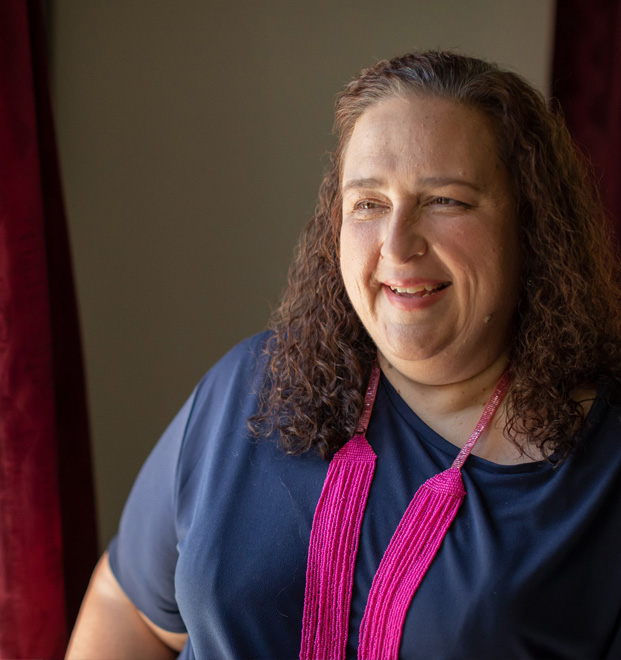PLASMA DONORS NEEDED TO SAVE LIVES
Hear From a Doctor and Patient About the Ongoing Need for Plasma Donors and How Plasma Helps Those with Serious Diseases
Learn MoreBACKGROUND:
There is a critical and ongoing need for human plasma to produce life-saving medicines for people with serious and rare diseases. Human plasma is being used to produce therapies that treat diseases such as primary immune deficiencies, hereditary angioedema, hemophilia, Alpha-1 Antitrypsin deficiency and various bleeding and neurological disorders. Other plasma derived therapies, such as albumin, can also be used in the hospital or urgent care settings.
Those who donate plasma help people impacted by serious and rare diseases live full and productive lives. Plasma donors are often greatly appreciated by those suffering from these serious diseases, and some even spend their free time at donation centers to personally thank donors because they make such an impact in their life.
HIGHLIGHTS:
- Plasma is a straw-colored liquid that is seen after centrifugation in the plasma donation procedure separates out blood cells such as red blood cells, white blood cells and platelets.
- Plasma is made up of water (about 90%), proteins and clotting factors (8%), and small amounts of salts, glucose (blood sugar) and lipids (fats). It helps to maintain a satisfactory and steady level of blood pressure as well as deliver proteins to all the parts of the body to ensure blood can clot after injury and fight off infections.
- To donate at CSL Plasma, a person must be in good health, between the ages of 18-74, weigh at least 110 pounds, have no tattoos or piercings within the last 4 months, meet eligibility and screening requirements as well as have valid identification and a permanent address.
- Primary immunodeficiency diseases weaken the immune system, allowing infections and other health problems to occur more easily and more than 130 plasma donations are needed to treat one primary immune deficiency patient.
- Hereditary Angioedema (HAE) is a rare hereditary disease that can cause attacks of swelling, and often pain, in specific parts of the body including the stomach, hands, feet, arms, legs, genitals, throat, and face.
- People with HAE are missing or have low levels of a protein called C1 esterase inhibitor (C1-INH); in some cases, the C1-INH levels are sufficient, but the protein does not function properly. The defect with C1-INH lies within a person’s genetic code, which is why HAE runs in families.
- There is a 50% chance of someone with HAE passing it on to a child.1
- Hemophilia is an inherited disorder in which the blood does not clot due to insufficient clotting factors. This causes bleeding, pain, swelling or tightness in joints, blood in urine or stool, and nose bleeds. More than 1,200 plasma donations are needed to treat one hemophilia patient for a year.
- Alpha-1 Antitrypsin deficiency is an inherited genetic disorder that causes low levels of a protein that protect the lungs, it takes more than 900 donations to treat one alpha-1 patient.
On May 3, 2023, Dr. Toby Simon, Senior Medical and Safety Advisor, Global Clinical Safety, CSL Plasma, discussed why donating plasma is important, how it’s used in treatments and why there is an ongoing need for plasma donors. He also explained how the donation process works and provided resources for individuals interested in donating. Dr. Simon was joined by Machelle Pecoraro, who lives with HAE and spoke more about her experience as a patient and a mother who relies on plasma therapies and thanked the efforts of plasma donors. Machelle emphasized the importance of having access to these therapies so she can continue to care for her children, one of whom also has HAE.
For more information, please visit: cslplasma.com
ABOUT THE INTERVIEWEES:
MORE ABOUT MACHELLE PECORARO:
Machelle Pecoraro, of Readyville, TN, lives with Hereditary Angioedema (HAE). Machelle has been living with the disease all her life, but didn’t get diagnosed with it until her 20s and didn’t begin receiving plasma-derived therapies until her 30s. Since HAE is so rare, her father was never officially diagnosed with the condition, and passed away at age 23. Because Machelle has access to therapies made from plasma donations, she is able to live a full and productive life. Machelle is a proud parent of two sons, one of who also lives with HAE. She is currently an office assistant for an allergy and immunology practice, and enjoys writing, traveling and spending time with her family.
MORE ABOUT TOBY L. SIMON, M.D.
Dr. Toby Simon is Senior Medical and Safety Advisor, Global Clinical Safety at CSL Plasma. From 2011 to 2017 he was in research and development at the parent company, CSL Behring. Dr. Simon was Corporate Medical Director for CSL Plasma from 2006 to 2010, Chief Medical Officer and Chief Operating Officer for TriCore Reference Laboratories from 2001 to 2006, Vice President of Medical and Scientific Affairs of Serologicals Corporation from 1997 to 2001. From 1977 to 1997, he held positions with United Blood Services/Blood Systems, Inc. and the University Of New Mexico School Of Medicine. He continues as Clinical Professor of Pathology. Dr. Simon has written more than 100 articles and book chapters. He is also the senior co-editor of Principles of Transfusion Medicine, now into its fifth edition. He is a past-president of America’s Blood Centers, AABB, the South Central Association of Blood Banks and the New Mexico chapter of the American College of Physicians. Dr. Simon is certified in internal medicine, hematology and blood banking/transfusion medicine and has served on the Blood Banking/Transfusion Medicine Test Development and Advisory Committee of the American Board of Pathology. He was industry representative on the U.S. FDA Blood Products Advisory Committee from 2000 to 2002 and from 2012 to 2016. In 2015 he received the Robert W. Reilly Leadership Award from the Plasma Protein Therapeutics Association for his service to the plasma industry.
Interview Provided by: CSL Plasma
1 Is hereditary angioedema hereditary? DiscoverHAE. (n.d.). Retrieved February 10, 2023, from https://www.discoverhae.com/hereditary-angioedema-genetics



